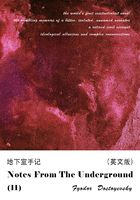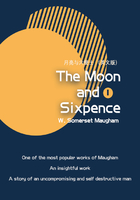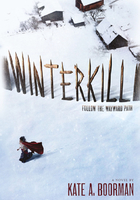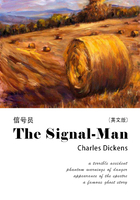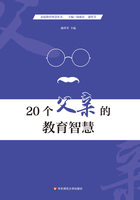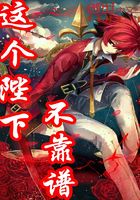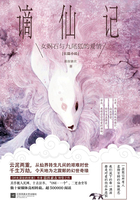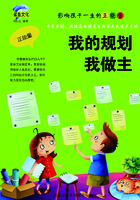On that third of March, all the rooms in the English Club were filled with a hum of conversation, like the hum of bees swarming in springtime. The members and guests of the Club wandered hither and thither, sat, stood, met, and separated, some in uniform and some in evening dress, and a few here and there with powdered hair and in Russian kaftans. Powdered footmen, in livery with buckled shoes and smart stockings, stood at every door anxiously noting visitors' every movement in order to offer their services. Most of those present were elderly, respected men with broad, self-confident faces, fat fingers, and resolute gestures and voices. This class of guests and members sat in certain habitual places and met in certain habitual groups. A minority of those present were casual guests- chiefly young men, among whom were Denisov, Rostov, and Dolokhov- who was now again an officer in the Semenov regiment. The faces of these young people, especially those who were militarymen, bore that expression of condescending respect for their elders which seems to say to the older generation, "We are prepared to respect and honor you, but all the same remember that the future belongs to us."
Nesvitski was there as an old member of the Club. Pierre, who at his wife's command had let his hair grow and abandoned his spectacles, went about the rooms fashionably dressed but looking sad and dull. Here, as elsewhere, he was surrounded by an atmosphere of subservience to his wealth, and being in the habit of lording it over these people, he treated them with absent-minded contempt.
By his age he should have belonged to the younger men, but by his wealth and connections he belonged to the groups old and honored guests, and so he went from one group to another. Some of the most important old men were the center of groups which even strangers approached respectfully to hear the voices of well-known men. The largest circles formed round Count Rostopchin, Valuev, and Naryshkin. Rostopchin was describing how the Russians had been overwhelmed by flying Austrians and had had to force their way through them with bayonets.
Valuev was confidentially telling that Uvarov had been sent from Petersburg to ascertain what Moscow was thinking about Austerlitz.
In the third circle, Naryshkin was speaking of the meeting of the Austrian Council of War at which Suvorov crowed like a cock in reply to the nonsense talked by the Austrian generals. Shinshin, standing close by, tried to make a joke, saying that Kutuzov had evidently failed to learn from Suvorov even so simple a thing as the art of crowing like a cock, but the elder members glanced severely at the wit, making him feel that in that place and on that day, it was improper to speak so of Kutuzov.
Count Ilya Rostov, hurried and preoccupied, went about in his soft boots between the dining and drawing rooms, hastily greeting the important and unimportant, all of whom he knew, as if they were all equals, while his eyes occasionally sought out his fine well-set-up young son, resting on him and winking joyfully at him. Young Rostov stood at a window with Dolokhov, whose acquaintance he had lately made and highly valued. The old count came up to them and pressed Dolokhov's hand.
"Please come and visit us… you know my brave boy… been together out there… both playing the hero… Ah, Vasili Ignatovich… How d'ye do, old fellow?" he said, turning to an old man who was passing, but before he had finished his greeting there was a general stir, and a footman who had run in announced, with a frightened face: "He's arrived!"
Bells rang, the stewards rushed forward, and- like rye shaken together in a shovel- the guests who had been scattered about in different rooms came together and crowded in the large drawing room by the door of the ballroom.
Bagration appeared in the doorway of the anteroom without hat or sword, which, in accord with the Club custom, he had given up to the hall porter. He had no lambskin cap on his head, nor had he a loaded whip over his shoulder, as when Rostov had seen him on the eve of the battle of Austerlitz, but wore a tight new uniform with Russian and foreign Orders, and the Star of St. George on his left breast. Evidently just before coming to the dinner he had had his hair and whiskers trimmed, which changed his appearance for the worse. There was something naively festive in his air, which, in conjunction with his firm and virile features, gave him a rather comical expression. Bekleshev and Theodore Uvarov, who had arrived with him, paused at the doorway to allow him, as the guest of honor, to enter first. Bagration was embarrassed, not wishing to avail himself of their courtesy, and this caused some delay at the doors, but after all he did at last enter first. He walked shyly and awkwardly over the parquet floor of the reception room, not knowing what to do with his hands; he was more accustomed to walk over a plowed field under fire, as he had done at the head of the Kursk regiment at Schon Grabern- and he would have found that easier. The committeemen met him at the first door and, expressing their delight at seeing such a highly honored guest, took possession of him as it were, without waiting for his reply, surrounded him, and led him to the drawing room. It was at first impossible to enter the drawing-room door for the crowd of members and guests jostling one another and trying to get a good look at Bagration over each other's shoulders, as if he were some rare animal. Count Ilya Rostov, laughing and repeating the words, "Make way, dear boy! Make way, make way!" pushed through the crowd more energetically than anyone, led the guests into the drawing room, and seated them on the center sofa. The bigwigs, the most respected members of the Club, beset the new arrivals. Count Ilya, again thrusting his way through the crowd, went out of the drawing room and reappeared a minute later with another committeeman, carrying a large silver salver which he presented to Prince Bagration. On the salver lay some verses composed and printed in the hero's honor. Bagration, on seeing the salver, glanced around in dismay, as though seeking help. But all eyes demanded that he should submit. Feeling himself in their power, he resolutely took the salver with both hands and looked sternly and reproachfully at the count who had presented it to him. Someone obligingly took the dish from Bagration (or he would, it seemed, have held it till evening and have gone in to dinner with it) and drew his attention to the verses.
"Well, I will read them, then!" Bagration seemed to say, and, fixing his weary eyes on the paper, began to read them with a fixed and serious expression. But the author himself took the verses and began reading them aloud. Bagration bowed his bead and listened:
Bring glory then to Alexander's reign And on the throne our Titus shield.
A dreaded foe be thou, kindhearted as a man, A Rhipheus at home, a Caesar in the field!
E'en fortunate Napoleon
Knows by experience, now, Bagration, And dare not Herculean Russians trouble… But before he had finished reading, a stentorian major-domo announced that dinner was ready! The door opened, and from the dining room came the resounding strains of the polonaise:
Conquest's joyful thunder waken, Triumph, valiant Russians, now!… and Count Rostov, glancing angrily at the author who went on reading his verses, bowed to Bagration. Everyone rose, feeling that dinner was more important than verses, and Bagration, again preceding all the rest, went in to dinner. He was seated in the place of honor between two Alexanders- Bekleshev and Naryshkin- which was a significant allusion to the name of the sovereign. Three hundred persons took their seats in the dining room, according to their rank and importance: the more important nearer to the honored guest, as naturally as water flows deepest where the land lies lowest.
Just before dinner, Count Ilya Rostov presented his son to Bagration, who recognized him and said a few words to him, disjointed and awkward, as were all the words he spoke that day, and Count Ilya looked joyfully and proudly around while Bagration spoke to his son.
Nicholas Rostov, with Denisov and his new acquaintance, Dolokhov, sat almost at the middle of the table. Facing them sat Pierre, beside Prince Nesvitski. Count Ilya Rostov with the other members of the committee sat facing Bagration and, as the very personification of Moscow hospitality, did the honors to the prince.
His efforts had not been in vain. The dinner, both the Lenten and the other fare, was splendid, yet he could not feel quite at ease till the end of the meal. He winked at the butler, whispered directions to the footmen, and awaited each expected dish with some anxiety. Everything was excellent. With the second course, a gigantic sterlet (at sight of which Ilya Rostov blushed with self-conscious pleasure), the footmen began popping corks and filling the champagne glasses. After the fish, which made a certain sensation, the count exchanged glances with the other committeemen. "There will be many toasts, it's time to begin," he whispered, and taking up his glass, he rose. All were silent, waiting for what he would say.
"To the health of our Sovereign, the Emperor!" he cried, and at the same moment his kindly eyes grew moist with tears of joy and enthusiasm. The band immediately struck up "Conquest's joyful thunder waken…" All rose and cried "Hurrah!" Bagration also rose and shouted "Hurrah!" in exactly the same voice in which he had shouted it on the field at Schon Grabern. Young Rostov's ecstatic voice could be heard above the three hundred others. He nearly wept. "To the health of our Sovereign, the Emperor!" he roared, "Hurrah!" and emptying his glass at one gulp he dashed it to the floor. Many followed his example, and the loud shouting continued for a long time. When the voices subsided, the footmen cleared away the broken glass and everybody sat down again, smiling at the noise they had made and exchanging remarks. The old count rose once more, glanced at a note lying beside his plate, and proposed a toast, "To the health of the hero of our last campaign, Prince Peter Ivanovich Bagration!" and again his blue eyes grew moist. "Hurrah!" cried the three hundred voices again, but instead of the band a choir began singing a cantata composed by Paul Ivanovich Kutuzov:
Russians! O'er all barriers on!
Courage conquest guarantees;
Have we not Bagration?
He brings foe men to their knees,… etc.
As soon as the singing was over, another and another toast was proposed and Count Ilya Rostov became more and more moved, more glass was smashed, and the shouting grew louder. They drank to Bekleshev, Naryshkin, Uvarov, Dolgorukov, Apraksin, Valuev, to the committee, to all the Club members and to all the Club guests, and finally to Count Ilya Rostov separately, as the organizer of the banquet. At that toast, the count took out his handkerchief and, covering his face, wept outright.

